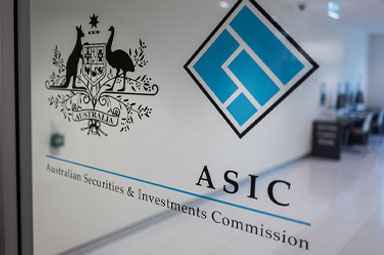-
Get the latest news! Subscribe to the ifa bulletin
Has ASIC been compromised by the institutions?
The corporate regulator has been found to be accepting a range of gifts from the institutions they’ve been tasked to regulate. This only serves to confirm what has been long suspected within the non-aligned advice community.
- A
- A
- A
Last week, The Age reported on the extent to which ASIC has been allowing gifts and hospitality from the larger institutions.
ASIC provided them with a record of the gifts it had received from 2014 to 2017. Among the items on that list included a private label Barossa Valley wine from the Bank of China, an Emirates international flight upgrade and tickets to the Byron Bay Bluesfest.
The register also revealed that in 2017 Macquarie Group wined and dined with ASIC staff at Beta Bar in Sydney. During that time, the investment bank was embroiled in several ASIC investigations and was ordered to compensate former clients to the order of tens of millions of dollars.
Unfortunately, ASIC declined to provide its gifts register for 2018.
For many non-institutional advisers, this comes as no shock. Every adviser banning order in recent times (such as those of Matthew Geappen and Julie Hamilton) only serves to confirm those suspicions.
Maybe if it was only one isolated case, perhaps that could easily be put down to mere coincidence. But when it’s multiple cases (add to that list Adam Palmer and Koresh Houghton), something surely must be up.
ASIC’s Wealth Management Project, the initiative aimed at lifting the standards of major financial providers, has been in place since 2014. It was only after these advisers left to go to a non-aligned licensee that the institutions blew the whistle.
What stopped institutions such as Westpac, CBA and AMP from reporting these advisers to ASIC while they were still with their respective institutional licensee? Why did they all blow the whistle on them years after they left their licensee? Why was the whistle blown once these advisers had joined Dover?
Perhaps maybe since the Hayne royal commission has revealed that ASIC hasn’t been as perfect in its conduct as it likes to claim whenever it hands out adviser and licensee bans, it feels under more pressure to show that it’s performing its regulatory function.
What is more interesting is that all of the aforementioned advisers had gone to Dover when they left their institutional licensee. What better way to show regulatory toughness than to ban advisers who had been with the licensee ASIC was hellbent on closing down, and not even for conduct at Dover, rather the conduct from when they were at their former institutional licensee.
That is not to say every adviser was perfect. Any adviser worth their weight would be the first to admit they’re not perfect every time with their statement of advice to clients. Every one of the aforementioned advisers had some minor compliance issues with the advice they had given to clients. Perhaps you might think that these indiscretions might be unforgivable.
But do these minor indiscretions constitute, as ASIC said when it banned Mr Geappen, failing to act in the best interests of his clients, failing to give advice that was appropriate, failing to give priority to the interests of his clients over his own interests, or not adequately trained or competent to provide financial services?
Personally, I think there are elements of overkill with ASIC’s statement.
While we await the final report from the banking royal commission, and the fate of a number of financial institutions lay in the hands of Kenneth Hayne and his counsel assisting, something smells rotten at the offices of ASIC.

Adrian Flores
Adrian Flores is a deputy editor at Momentum Media, focusing mainly on banking, wealth management and financial services. He has also written for Public Accountant, Accountants Daily and The CEO Magazine.
You can contact him on [email protected].
Subscribe to 
Never miss the stories that impact the industry.


